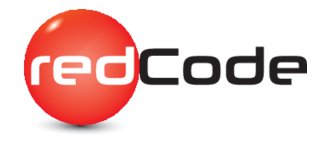What is Cloud Storage? If you’re searching for an inexpensive, easy place to store your data, cloud storage presents a great alternative. But what exactly is cloud storage anyway? Think of cloud storage as… well, a virtual space (much like a cloud) that is grounded on remote servers which keep your data and information safe and secure.
In case you didn’t know, Google Drive and Docs are two of the most popular programs for backing up your data. You can also do this with external hard drives and CDs as well. The nice thing about cloud storage services is that they all fall into one of three categories: online storage, document backup, and video backup. So how do you determine which program is best for your personal needs, and how do you get it started?
How Much Storage You Need?
The first step in deciding on the right business cloud storage solution is to understand just how much storage you’ll need. How much information will you store on the web? What type of files will you be storing? You should try to get a good idea of what your daily transactions are so that you can decide what kind of program is best suited for you. Many companies store confidential information, and if you need to back up this information regularly, you should consider an online service like Backblaze.
Data Encrypted:
Once you’ve decided on your budget and the amount of information you wish to back up, you should consider how you want your data encrypted. Most cloud services provide a choice between open and private encryption keys. Open encryption keys require anyone who views the data to have a valid encryption key, which they create themselves by hand.
A private key, on the other hand, is only made known to you and to the person who owns the file. Encryption keys are often more secure than open keys, but they are not as easily forgotten or destroyed as a private key. Both types of encryption keys are very useful for keeping the integrity of your data and ensuring that it can be accessed with the same level of privacy as possible.
Choose the Type of Integrations:
Once you have your data encrypted and you’re ready to begin using cloud services, you need to choose the type of integrations that you’ll use. The easiest integrations to use are those that work with other programs like Microsoft SharePoint or Business Cloud. These integration services make sharing documents and other data easier and more efficient.
One of the most common uses for these integration services is to allow business users to take advantage of shared documents without having to upload them to their own computer first. If an employee wants to open up a document from the Office application, he can do so from his SharePoint site and then send it out with a simple email.
Encryption and Authentication:
Encryption and authentication are also popular reasons for using cloud storage for business. Encryption makes it impossible for a third party to access or read the information on-premise. This is especially important if you’re using cloud storage for your business data centers, because third parties may be able to read your confidential information. Using 2FA (2-Factor Authentication) ensures that even if a third party tries to access your data, they will not be able to take your confidential data without authorization from you or another user in your company.
Two Different Types of Options:
When you are selecting cloud storage for business, it’s also important to consider how your data is being stored. There are two different types of options: self-hosted and hosted. Self-hosted storage requires that data is stored on a server that is physically located on-site (in a data center). Many business enterprises choose self-hosted because it’s cost-effective, as well as convenient. However, in order to use self-hosted, it’s necessary to have access to high-speed Internet, reliable telephone lines, and adequate storage space.
Hosted storage is often more cost-effective and easier to implement. The data is stored on a cloud service provider’s own infrastructure – it doesn’t need to be stored in a physical location. Furthermore, many hosted cloud services provide their customers with compliance regulations, such as data security and encryption. The customer data is protected, and backup systems are in place should data go down for any reason. However, if a business enterprise chooses to store its customer data in a self-hosted environment, there are many compliance regulations to consider.




